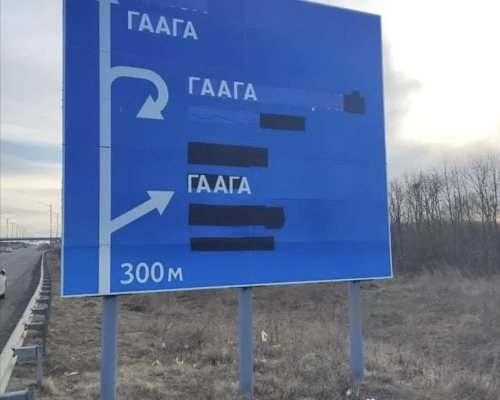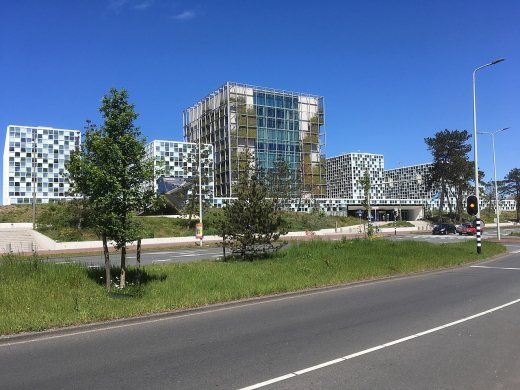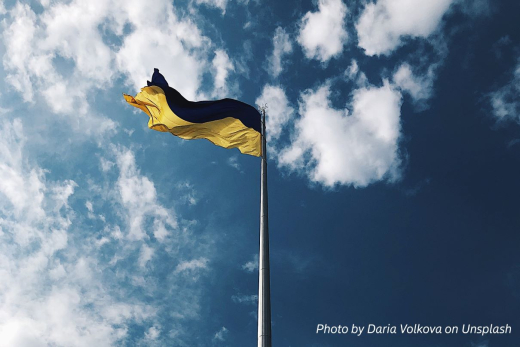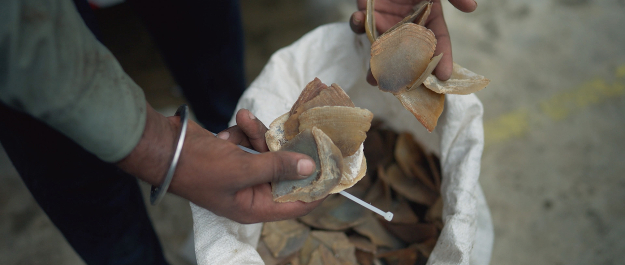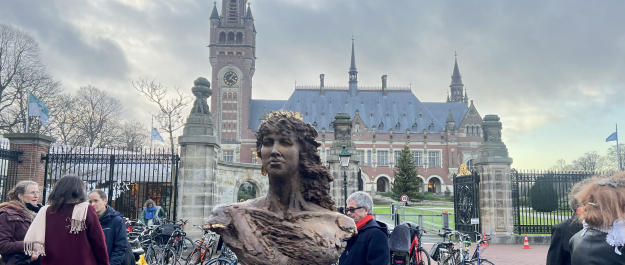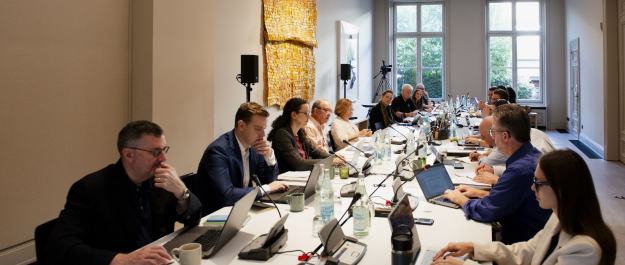Since the Russian invasion of Ukraine in February 2022, The Hague has been front and centre in discussions about accountability for war crimes. With major institutions like International Criminal Court based in the city, The Hague is has become synonymous worldwide with justice.
The Hague as the moral compass of war
While the world held its breath, waiting to see if Russia’s invasion of Ukraine on February 24, 2022, would be successful and topple Ukrainian president Zelensky, social media was flooded with memes showing Ukrainian road signs changed, telling the invaders that any direction they took would be to ‘The Hague’. It was more than a joke; it was a way of saying that there is a clear route to accountability for war crimes, and that route in The Hague.
The International Criminal Court was kicked into action over Ukraine by the largest referral by states of any situation. Some 42 joined in, asking the prosecutor Karim Khan to open an investigation. Since then there have been large money pledges from them to support the court’s work.
But there are also many other parts of the accountability jigsaw that are happening in The Hague. Ukraine had already invoked international law, after the first Russian occupation in 2014.
“From the outset” said Mykola Gnatovsky, former professor of international law at Kiev University, “Ukraine decided to use every possible avenue to bring the matters related to to Russia's aggression to international courts”.
At the UN’s highest court, the International Court of Justice Russia faces a number of cases, but these are slow processes acknowledges Gnatovsky.
Howard Morrison on prosecuting war crimes
There are several interlocking avenues for accountability for alleged atrocity crimes. Howard Morrison special adviser to the Ukrainian chief prosecutor and former judge at the ICC, outlines them broadly as via the ICC, Ukrainian domestic prosecutions, a special tribunal and universal jurisdiction (where individual states also undertake prosecutions in their national courts) .
The ICC pays a large role on helping the coordination of the investigation and collection evidence, as the key member of the Hague-based Eurojust Joint Investigative Team. As a coordination mechanism for European states, Eurojust has representatives from all European states – including those which host thousands of Ukrainian refugees. Ukrainian international lawyer Nadia Volkova says “I think the biggest challenge at the moment or it will be for some time, is just to collect all this information and preserve it properly”.
On the domestic front, Ukrainian judges are already dealing with war crimes cases, but under very difficult conditions. Some organisations in the Hague are involved with training and support.
Additionally, a new organisation was announced in February 2023– the new International Centre for the Prosecution of the Crime of Aggression in Ukraine will be is based in The Hague. Over the last year, Kiev has pushed hard for states to come up with a way to take the top leadership of the Russian Federation to court over aggression. Many questions still surround what will be practical, and exactly what kind of court may emerge in the future.
For Ukrainian lawyer and academic Kateryna Busol, it feels as if the world has now “woken up”, even though Ukraine itself has been pursuing cases since 2014. She notes that “the patterns of crimes” which emerged in the current conflict: “a horrific level of the enforced disappearances, torture, conflict related sexual violence” was all there before the 2022 invasion, documented in human rights report after report. This whole justice related response is in fact “overdue” she says and something that Ukrainians, had “demanded much earlier”.
Gnatovsky says that justice “has to be done by by those who are able and those who are willing” And The Hague’s institutions are shown to be both.
